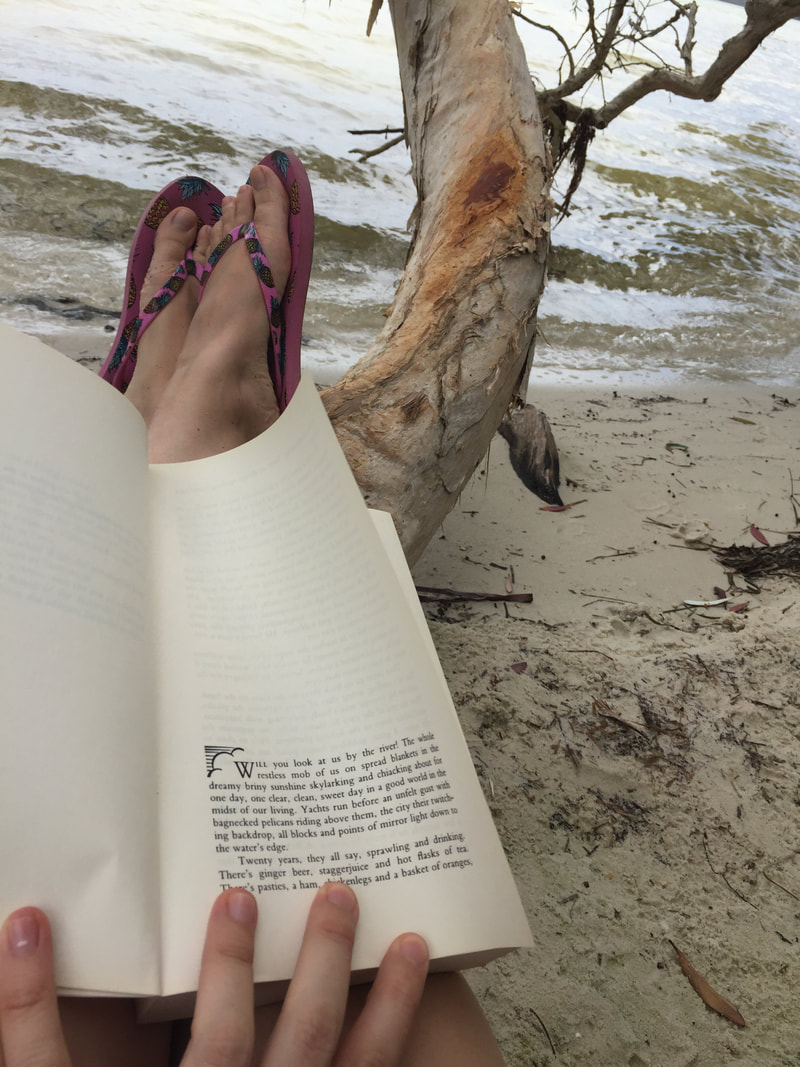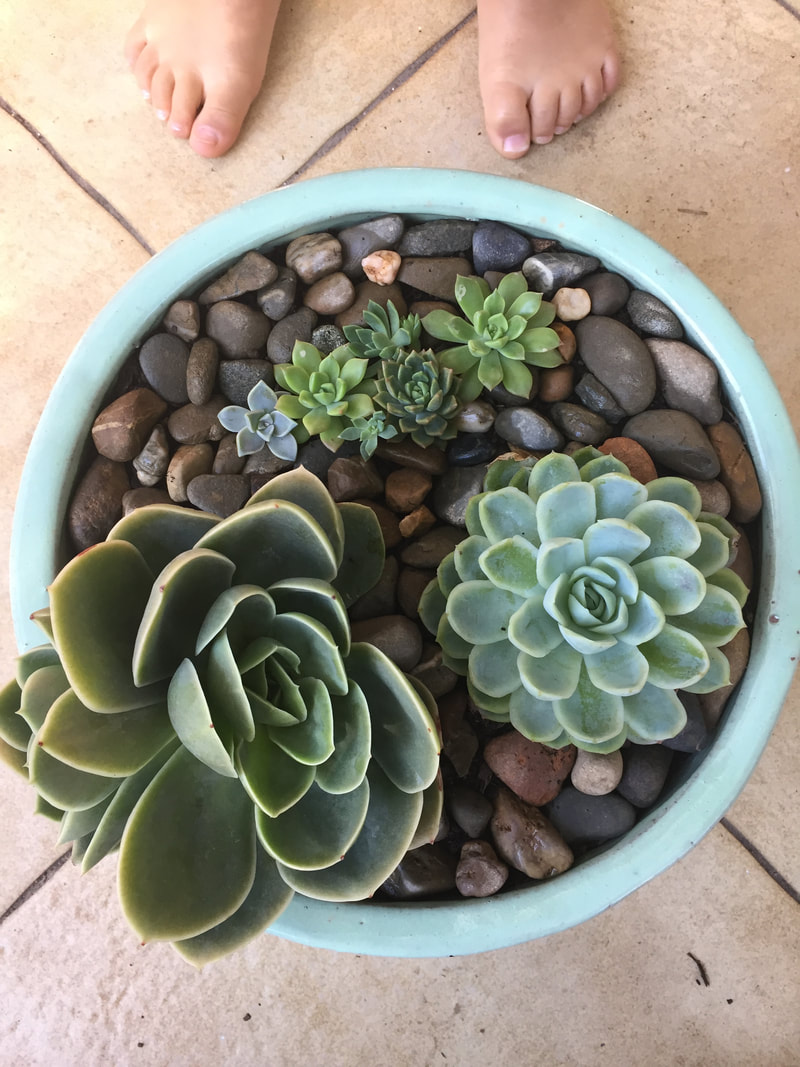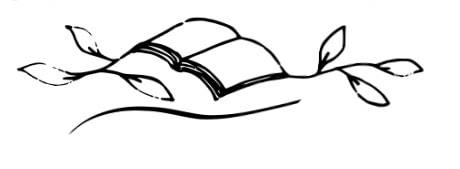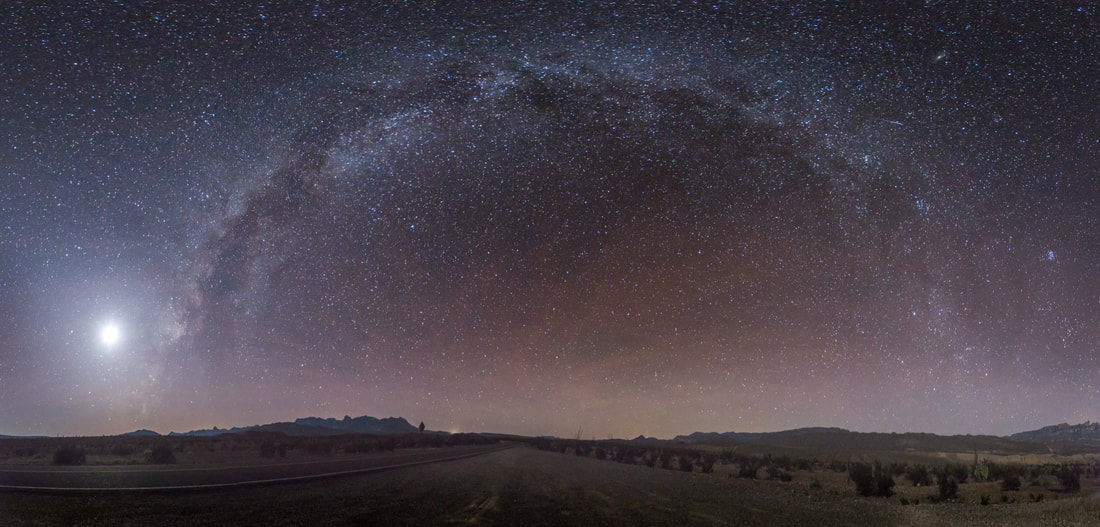WelcomeHi, I'm Laura. Archives
June 2018
Categories
All
Let's Connect |
Back to Blog
The Arrival: A Short Story1/12/2017 ~The Arrival~ “O come, O come, Emmanuel, And ransom captive Israel, That mourns in lonely exile here, Until the Son of God appear. Rejoice! Rejoice!” The camp was hushed in deference to their guests. Sarah waited inside her tent, ears pricked to catch any words their visitors may offer. But seated outside beneath the trees these men had so far eaten in suspended silence. Then a foreign voice cut the quiet. “Where is your wife, Sarah?” Sarah stumbled back. How could she be known to these men? “There, in the tent.” Abraham answered. His words scuttled spider-like across her skin, as if she’d been unveiled. Or had the stranger’s voice irked her, his knowingness? Again he spoke, “I will return about this time next year, and your wife will have a son.” Oh, this again? Under her breath Sarah laughed. She laughed a laugh that was a mouthful of sharp stones. Her hands fisted around the cloth of her tunic where it fell limp across her fleshless womb. Hands dry and cracked and dusted with flour from the bread she had baked. Hands she did not want to accept as her own. Dry, cracked, dusty, and foreign, a picture of the land they had wandered since leaving Haran. A land contaminated and cursed with the worst of what the world became after Adam and Eve hid from God and Eden closed its gates. A story was told about this time, and as they travelled throughout Canaan its words seemed to come alive before Sarah’s eyes. “God saw that human evil was out of control. People thought evil, imagined evil—evil, evil, evil from morning to night. God was sorry that he had made the human race; it broke his heart. God said, “I’ll get rid of my ruined creation, make a clean sweep: people, animals, snakes and bugs, birds—the works. I’m sorry I made them.” Do you see? Sarah wished to shout at her husband’s invisible God while waving towards the cities of Sodom and Gomorrah down on the plains beyond their campsite. Why don’t you send another purge? Nothing but evil grows in this place. But God had not sent another flood. God had given a promise. God had promised a kingdom and God had promised a son. A kingdom! This kingdom would be Eden reborn, a nation living with God as king in a land of blessing and abundance. And a son, her son—a son through whom this kingdom would be brought to glorious life. How her heart had blossomed at the thought of the softness of his little cheeks beneath her kiss, how her arms had ached to be filled with his wet wiggly weight, and ached and ached and ached. For the years had turned and turned and she had waited and waited, waited until she was reduced to nothing but an unused vessel, a pot dropped on the way to the well, broken, left behind, forgotten. And her womb, her womb had now become this land, land which like their unborn son was another ungiven promise—dry, cracked, cursed, and contaminated by the time her husband abandoned her to the pleasure of Egypt’s king to secure his own life. Sarah wiped her hands on her tunic, muttering a bitter curse, that the bread she had baked would bloat in the stomach of the stranger and befoul his bowels later on the road. For this is how she had lived, promised good things but left with rags sodden with rot. This morning when her husband had burst into her tent such light had filled his eyes that for a moment she mistook him for the young man she had married and remembered herself brimming with the delight of an expectant bride. Then dirt and dust and desert and his crumbled face and crooked body had clouded her vision. “He is here. Bake bread. We will kill the fattened calf,” Abraham said, breathless. “Who is here?” she had snapped at the swinging tent flap. He was already gone. And now this stranger sat with her husband and scoffed mouthfuls of their riches, and in return fed them more lies. There would be no son. She was poisoned earth, a land of decay. Sarah coughed another laugh, the false hope this stranger offered squirmed in her mouth like meat bitten and discovered maggot filled. She laughed so she wouldn’t howl. “Why does Sarah laugh?” the stranger asked. Sarah clamped her hand over her mouth. “Sarah, why did you laugh?” The stranger asked again, louder. Sarah’s heart lurched as if dragged on gravel. He was calling out to her, not passing comment. “What is impossible with man is possible with God.” To her surprise the stranger offered his defence rather than demanding hers. “I tell you the truth, I will return this time next year, and you will have a son.” His voice was imbued with such kindness that her eyes itched with renegade tears. No—she took her hands from her mouth and pushed this escaped liquid back with the heels of her palms. He was a trickster, skilled at falsehood, sure to want a price for her disrespect. His show of gentleness was the calm before a brewing storm. “I didn’t laugh,” she exclaimed before she could rein in her fears, then clamped her hands again over her mouth, fell to her knees, and brought the storm with her grief. “No, you laughed,” said the stranger. Why such sadness to his words? Later, she lay awake on her sleeping mat. The night’s wind danced around the tent; rattling the poles, it exhaled and inhaled into the skin walls, giving shape and breath to the endless black. She slipped her hands beneath her tunic and pressed her time wrinkled fingers to the desiccated hollow of her stomach. Spent of sorrow she was numb as frostbite. She jolted as a body lay beside her. A hand rested on her chin, thumb touched to her lips. This hand she knew as well as her own. He was cold from the night. He was hot with expectation. He waited. The wretch! She wanted to thwart his confidence she would defrost beneath the simple press of his wizened skin. She wanted—she turned to meet his kiss. “The stranger was empty of truth,” she breathed. “You must not hope.” He took a while to find his voice. “No stranger, Sarah, but God.” **** Hushed in deference… Advent is here. A younger version of me once rejected anything church calendar related as empty tradition, relics wrongly imbued with magical meaning. I am a slow learner perhaps, only in these past few years discovering how these rhythms and rituals were fashioned in the hearts our church ancestors to illuminate truth, and teach our apathetic and rebellious souls the art of worship and ongoing resurrection amidst a loudly pagan world. I will return… Advent means ‘coming’ or ‘arrival’ and it unravels across the four Sunday’s before Christmas. It is a season of anticipation and preparation. It intersects our wait for Jesus to return with Israel in exile waiting for the Messiah. Advent is an invitation to reflect on the joy and sorrow of our year and reembrace our place within God’s wondrous unfolding mission of salvation and resurrection. A land contaminated… God’s mission of resurrection began the day his good world was contaminated. Exile runs deeper than Israel’s defeat by Babylon. Exile is us shut out of Eden, cut off from the tree of life, forbidden to walk the same ground as God. Exile is the curse of sin. Exile is the decay of all good, from our fragile bodies to our fragile earth. Exile is creation divorced from God, creation undoing itself. Advent is a reminder that sin steeped we are not who we are made to be, and this world not our true home. We were made to walk with God in a garden of abundance. Send another purge… Sin requires judgement. We know this however much it squirms against our ethical sensibilities. Without judgement there is no justice. How our hurting world cries for true justice! God purged the rot from creation once with the flood, but he will purge absolutely on the final day, the day Jesus arrives, the day creation’s rebirth is completed. But to prepare for this day we hold a gift our ancestors such as Sarah and Noah lacked within their lifetime, a gift the prophets began to speak of when Israel failed their mission to live as God people—we have a fix to our sin broken hearts, we have new hearts, we have Jesus. Advent trembles with the painful truth that justice comes through judgement, and judgement is coming with Jesus’ second arrival. Advent is a celebration that our sin is paid for by Jesus and so we can walk with Jesus into the eternal new creation. A promised son… Abraham and Sarah were promised Eden reborn—a new people living with God in a new land, overflow blessing into the world. All these promises hinged on a promised son, a son that didn’t come. And then he did. Isaac’s impossible birth cemented the trust of Abraham’s ancestors in God for ever after. God will because he did. Advent is a time to ensure that the relentless trouble we live within is not eroding our faith that God is bringing justice and rebirthing the world, but to secure our faith with the knowledge that God has kept all promises past and will keep all promises future. Eden reborn… After Isaac’s birth God kept adding to this record of promises kept. God built a great nation, God rescued them into Egypt from the famine, and rescued them from slavery into the desert, and from the desert into the Promised Land, and then from exile back to the Promised Land, and then thrust them into complete spiritual rebirth in Christ, transforming them into kingdom set to spread across the globe as a living outpost of the new creation. A kingdom commissioned to grow, and grow, and grow until its final completion when Christ returns. Advent returns to our attention the promise that in Christ we are Eden bound, and commissioned to call everyone to come aboard the ark which Jesus offers. And waited… Salvation, it seems, takes time. Israel once waited—fistful of God’s promises—waited in miserable exile for God to send their Messiah. Before this they waited in the desert, waited to be given the land promised to Abraham. Previous to desert life Jacob’s children waited in Egypt, waited in slavery, waited to be the great nation God had promised to build from their offspring. Earlier still, Abraham and Sarah waited for the promised son, the seed through which blessing would be poured onto the whole world. And we wait, wait within the grip of a broken world, wait for Jesus to come again and put all things right in one final act of judgement and recreation. We wait. Waiting is hard. Sarah laughed… God’s promises seemed ridiculous. The brokenness of the world had worn her faith to threads. The son hadn’t come. She did not see God as big enough to do the impossible. All was wrong and would stay wrong. I’m sure the disciples thought the same when watching Jesus die on the cross. But God is not small. God does not take the expected road. God flips all wrong for his glory. And yes, the world is wrong. But God is at work turning death into life. Sarah called her miracle son Isaac, ‘laughter’, a joke for the God she had disbelieved and lied to, and an expression of her re-found hope and utter joy. Sometimes all we build for good can seem like sandcastles on a tidal beach, ruined over and over, useless to begin. Like Sarah, we can fall into despair and disbelief because we cannot see God at work. But we have so much more story than Sarah had to hold onto. We can see Isaac in Sarah’s arms, we can see Jesus in the manger, and we can see Jesus on the cross. Advent is a space to grieve all that is wrong, all that was lost in the fall, all we do not have yet, all we wait for in Jesus’ return. But we grieve cradled by the assured hope that better is coming. Advent is a time to weep, a time to accept our inadequacies, a time to look up at Christ’s sufficiency, a time to step forward inside Christ and be who we are—God’s restored image-bearers. It is a time to begin again making little choices and big choices to be God’s beauty and light and justice in every moment, to intersect God’s glory with our everyday ordinary, to be open windows which give our world a glimpse of resurrected reality. No stranger, Sarah, but God… God arrives. God walked with Adam and Eve. God gave Noah ark instructions. God visited Abraham and Sarah. God wrested Jacob. God met with Moses. God is here. We just don’t see. The incarnation was for us to meet God, to give flesh to a God beyond what our minds could grasp. God knows us. God wants to be known and trusted. God doesn’t need us, God loves us. We have a seat at God’s banquet. We have a room in God’s house. God calls us back to Eden to walk again by his side. So why not lean into Advent this December? The internet is rich with resources—books, study series, advent calendars—ready to help you create advent rituals for yourself and for your whole household. Or perhaps you can birth brand new creations from your own beautiful imaginations. But let’s continue to train ourselves to embrace our participation in God’s great ongoing story of salvation, and fix our eyes on Christ—the fulfilment of all promises past, the answer to all promises future, the living new creation we are a part of, and the beat of our spirit filled hearts. Sarah and Abraham’s journey through salvation history can be found in Genesis 11-25. It is epic, go read it. The story of Abraham’s ancestors continues on in the church today as through Christ we are adopted into God’s chosen people. My quote from the Noah narrative is abbreviated from the Message written by Eugene Peterson. Looking for resources for your journey through Advent? I enjoyed Lara J Williams Advent study series ‘Then Came Jesus’ https://tooverflowing.com/then-came-jesus-bible-study/ As a family we read Ann Voskamp’s ‘Unwrapping the Greatest Gift’ http://annvoskamp.com/thegreatestchristmas/ This year I’m looking forward to exploring into this gorgeous free Advent experience by Bette Lynn Dickinson—A Pregnant Pause. Her paintings are just glorious. https://intervarsity.org/pregnant-pause Also, Common Grace is offering a free Advent series that looks seriously beautiful. http://www.commongrace.org.au/day1_advent I’ve heard good things about Sweet Honeycomb’s Advent calendar. https://sweethoneycomb.com.au/ And the wonderful Sarah Bessey has a whole blog on Advent resources. http://sarahbessey.com/advent-resources/ I would love to hear what you are doing to lean into Advent this year… Wow! You read this far! Thank you, lovely friend. xx Laura.
2 Comments
Read More
Back to Blog
Breaking Light: A Short Story3/8/2017 ~Breaking Light~ She was laughing at him, his beautiful wife-well, soon to be his wife—laughing at his inability to bring forth light. His fingers trembled as again and again he struck the flint, failing to ignite a spark. Usually her laugh hooked his smile, but not now, not in this dark, cold, dirty now. No. His insides were a marsh gone stagnant, swollen with pent-up tears and the words of filth he’d wanted to shout all day, at every soldier they passed, and every household that turned them away. Again he hit the flint; Mary giggled like he mimicked failure for her merriment. He had known her all her life; she seemed to always keep a laugh budding on her lips and a dance in her eyes. They had grown up neighbours, betrothed since they were both small. Would she have found a reason to laugh even if watching her tomb freshly cut? He swallowed, his stomach pitching at this thought. There were vigilantes in their town who had vied to cut her grave for her supposed impurity. This was why he had not left her home with his mother, but brought her with him on this forced and untimely journey. Untimely—he’d hoped to return before Mary’s pains, but today they had begun at dawn, waves which gained breadth and height as she walked beside him on the winding road through the rocky hills. And as the sun sagged, rather than seek a cave, they had pushed on, Mary singing the songs of their childhood into the dwindling light, songs a mother would sing to a child, until her mounting pain kept stealing away her sweet voice. Stolen voices—during the last census his father had downed tools to make this trip. Family heads had had to report their household income to the foreigners; to be divided like a thin lamb amongst fat wolves. But two springs past, his father had been whistling as he whittled wood one day, and not woken up the next. His happy father: the trickle of gentle instruction in his ear, the steady hand on his shoulder—gone. For months after his father’s death, he’d felt like all around him was a dream, and if he woke he would discover himself plummeting down a dark bottomless pit. His father’s death in an instant forged him into a man, with a household to carry. What had kept this weight from crushing him was Mary—Mary with her merry eyes, soon to blossom into a woman, soon to come fill his home with her laugh. He had fallen into another bottomless pit when told Mary was seeded with a child that could not be his. “Her field has been ploughed,” said his mother. Never had he heard his sisters so simultaneously silent. “We will make you other arrangements.” He’d gone up to the roof to be alone, biting his fists so as not to scream. He loved her. That night, after succumbing to sleep beneath the stars, he had dreamed madness, utter madness, and at first light, walked next door to fetch his promised wife. Taking her hand, he’d led her across his threshold. Mary had both laughed and cried. But while her mother wept relief, his mother and sisters brewed their shame into spite. Around them the village grumbled, scorning mercy, lusting after bloody sacrifice. He’d cautioned Mary not to leave his courtyard. When the census was called, he’d deemed it safest she travel with him. They had reached his ancestral town just as the sun snuffed out. Why, why did he expect any welcome here? They had knocked on the doors of all his relatives, only to be turned away. Rooms full, was the repeated excuse. He should have sworn in each face. If they were strangers, would these households have lit lamps and baked new bread? They had travelled a week to reach this town, but juicy rumour was winged like a hunting bird, crossing the hills ahead of their feet. The last house they had approached he knew to be owned by weavers, having visited here as a boy. Entering the courtyard he recalled that they kept looms in their lower room, not their livestock. The stable was separate to the dwelling, built into the courtyard wall. With Mary’s legs quivering and her breath tight, he didn’t bother to knock and risk unwelcome, but guided his wife into this refuge for beasts, sucking in shame as he spread his cloak on the filthy floor and eased her down to rest. And now here he was, trying and failing to light a lamp to pierce the swarming dark. He was plummeting again, and nothing was a dream, and all his hope was in a dream. He hit the flint, gritting his teeth, eyes stinging tears. No flash, no spark. Mary reached out, calming his hands. “No need, the moon is bright,” she whispered. It was, bulged round like a clucky hen, its tepid light misting with the darkness at the entranceway. The stars also seemed unnaturally engorged. Her hands were warm, clasped over his, hovering above the little clay lamp. How were her hands warm? The night air was sickle-sharp and making steam of his panicked breaths. The shelter of the stable was a fake comfort, even the livestock had opted to remain outside, huddled where the last of the evening light would have graced the courtyard wall and seeped its mild heat into the rough cut stone. Gripped within his fist, the flint cut into his skin. He looked down at the lamp, a blurry lump in the scummy moonshine. He had poured the last of their oil into its well and dipped the wick. Why would the flint not spark? The urge to light this lamp boiled inside him like a bruised cloud primed to split the sky with cracks of fire. The moon dressed as the sun was not enough, or the puffed-up stars. The darkness needed cutting in every way possible, for tonight it felt dense as tar, and alive, a mob of muttering shadows. It was his mother telling him he was a waste of his father’s name, it was the black voices whispering that his dream was madness, God could not have spoken, it was the murmurs that the men of his town were amassing with stones in hand, it was the swarm of foreign soldiers riddling his country like wood-ants, and it was God’s four hundred years of pregnant silence, and the fear he was mistaken to believe it broken. Mary dropped his hands, hers falling to the ground. With her head sagged, she rose to rock on all fours, uttering a low groan that bit into his bones. No. Not yet. Not here. Bringing down his fist, Joseph smashed the lamp, coating his shaking knuckles in oil and jagged shards. Blackness solidified within his lungs. ‘Where are you?’ he flung a feeble prayer into the writhing dark. “It’s time,” said Mary with impossible calm. “He is coming.” I wrote Breaking Light to reflect on the dissonance I feel living in the overlap of old and new creation: my frustration with my inability to impact the darkness of this world, God’s apparent inaction in the face of global suffering, and my trust that God is present, building his Kingdom in ways I can’t imagine.
The moon is bright… Sometimes within my faith I feel an enormous amount of pressure to look on the bright side of everything. And there is much to be bright about! God is love. God is sovereign. The powers of darkness were defeated on the cross, and in Christ’s resurrection the new creation is seeded and growing. “Therefore, if anyone is in Christ, the new creation has come: The old is gone, the new is here!” writes Paul to the newborn church. Our Christ-ruled lives are new creation outposts; redeemed as God’s image-bearers, we shine as beacons which draw those around us to know God and join his mission of reconciliation. And beyond all this, the completed new creation awaits, glittering on the horizon. Who God is, who we are in Christ, our eternal destination, none of these change however grim our circumstances, so we can always be thankful, joyful, and contented. So we live bright! We gather up the seeds of God’s light: God mirrored in every kindness, God’s fingerprints in the beauty of creation. We let God’s light take root in us and spread its fruit lavishly. But as the completed new creation is yet to come, we do all this while wallowing though brokenness and dark, both globally, and within our own chaotic lives. The writhing dark… Cultivating light is essential to putting our resurrection into practice, but if we only recognise God in beautiful things, if we only measure our spiritual health in the expression of positive emotions, how are we to interpret all the moments when the darkness overwhelms and God appears absent? What do we do when our wounds refuse to clot, and we feel sad, frustrated, restless, and riddled with hollow places? Are these failures of faith, symptoms of doubt? Is this evidence that our recreation is stunted, akin to a butterfly emerging from its chrysalis, only to discover its promised wings deformed and useless? No flash, no spark… If you have ever sat in darkness desperately hitting the great truths of your faith together like flint stones and failing to ignite a fire, let me gently take your hands and reassure you this is okay. Weeping in a pile of dust and ashes can be as worshipful as singing jubilant hymns around a blazing bonfire. We live in an overlapping age, both in an old world rotting away, and a new world being remade. Of course we are restless, this space between Jesus’ two comings is itself the chrysalis; God’s people are being birthed, a birth that will not be fully realised until Jesus comes again. Light misting with the darkness… Some days the delighted wonder of all we are in Christ roars inside us like a waterfall, other days the grief of living in a sin-diseased world rises in us like a storm, flooding our inner rivers. Read any of Paul’s letters and you will see his faith holds in tension both these surging currents. This makes perfect sense, how can we love God and not lament all the ways God is rejected and our world a broken mess? ‘Where are you?’ When dark dominates, God can be hard to see. But while we must keep seeking God’s reflection in good and beautiful things, let’s not overlook that our pain, disappointment, and struggles, these are God in silhouette, God in fossil imprint, hollows only God is shaped to fill. We can sink in despair, or we can lever the weight of this lack to propel the pursuit faith requires, to stoke our desire to know God and grasp the full measure of his love. Our hurts, our longings, our restlessness, we can let them drive us to fill our holes with man-made idols, or we can recognise these aches as homesickness for the Eden we are built to live in, and use them to fuel our hope, so we can stand firm in faith until we finally reach the new world. Here we will be complete. Here we will rest. “He is coming.” God made us, God came back for us, God’s Spirit dwells in us now, and God is coming again to take us home. Let’s not forget, God does have an odd habit of appearing aloof when actually he is present in our lives in ways unimaginable. The birth of God captivates me—God himself, sticky with afterbirth, swaddled in rags, and tucked in a feeding trough. God came to live with us. We are this loved. Oh—I find God’s pursuit of his people so exciting. It’s hard not keep writing for hundreds of pages. How do you keep faith when life is dark? What ponderings did this story evoke for you? |


 RSS Feed
RSS Feed




